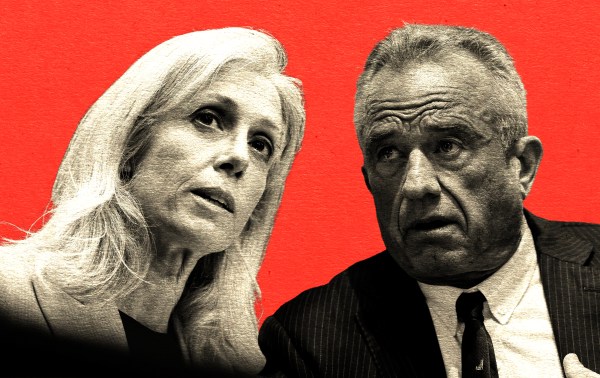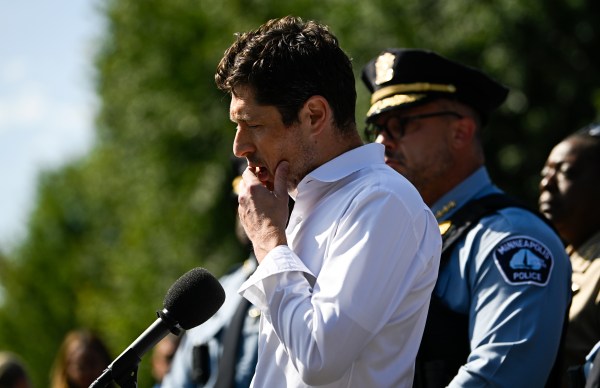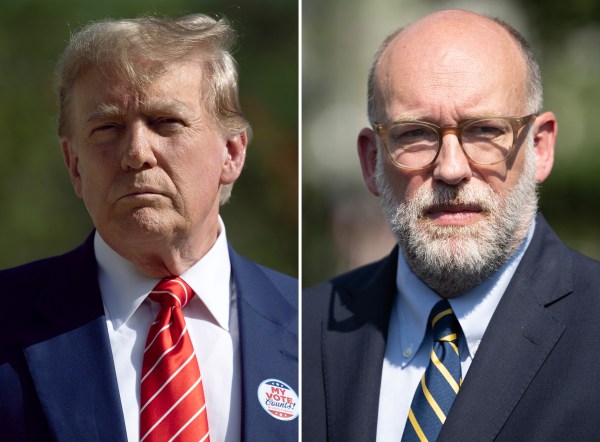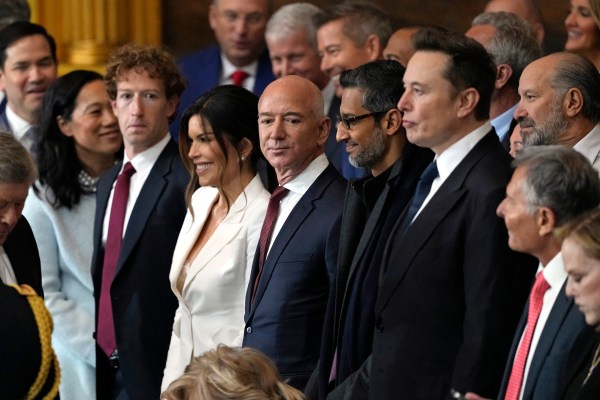With Donald Trump back in the White House and a pliant Republican majority eager to bring perceived cultural and political opponents to heel, the most serious threat to American pluralism is aimed not at the ballot box but at civil society, an often overlooked but essential feature of the American system of self-governance. Charities, philanthropic foundations, universities, and grassroots coalitions have been branded menaces, swept into punitive investigations, and threatened with forced exposure of their donors.
For decades, progressives have dismissed donor privacy concerns—and philanthropic freedom, generally—as a ruse devised by elites bent on hijacking democracy. But today, progressive voices are sounding the alarm to preserve those very freedoms. As someone who is fiercely nonpartisan, I welcome this reversal. Yet, it should serve as a cautionary tale. The lesson? Once the state acquires a taste for weaponizing donor lists and suppressing disfavored organizations, it’s unlikely to confine its ambitions to a narrow set of ideological targets.
The concerns are real and the stakes are high. Recently, the House Ways and Means Committee quietly inserted language into the Trump administration’s sweeping reconciliation bill that would grant the treasury secretary unilateral authority to revoke the tax-exempt status of any nonprofit the administration deems “terrorist supporting.” Though a diverse alliance of organizations and lawmakers had expressed concern at the prospect of giving a president’s administration unchecked authority to punish ideological opponents by fiat, the measure passed through committee with little scrutiny. Luckily, the provision was removed from the One Big Beautiful Bill by the Senate, but executive action in a similar vein under existing legal authorities remains an ongoing threat.
A troubling pattern had already begun materializing. A federal grant freeze targeting universities and nonprofits making use of so-called “DEI programming,” threats to strip Harvard and others of 501(c)(3) status, and promises to rewrite IRS rules so dissenting charities can be more easily targeted for investigation. Unlike some of the administration’s more unilateral actions via executive orders, this more intentional maneuvering signals the administration’s intent to consolidate power through the use of existing administrative levers.
Meanwhile, in more than 30 states both red and blue, legislators are fast-tracking “original-source” disclosure bills that would force nonprofits to publish their donors, effectively mapping whole networks of private association for political manipulation. The strategy, honed through progressive efforts to target conservative think tanks and charities, has provided the nationalist right with the playbook it needs to incapacitate civil society’s role as a bulwark against tyranny.
Some conservatives may be tempted to meet the left’s newfound enthusiasm for philanthropic freedom with snark and calls for retribution: “You made this bed. Now lie in it.” But if the goal is to reassert American principles of liberal democracy, that would be both a tactical miscalculation and a moral failure.
The case for donor privacy is deeply rooted in America’s constitutional history. In NAACP v. Alabama, the Supreme Court in 1958 barred Jim Crow officials from demanding the NAACP’s membership rolls, warning that disclosure would invite “economic reprisal, loss of employment, threat of physical coercion, and other manifestations of public hostility.” The ruling was no abstraction: In the Deep South at the time, naming donors was an engraved invitation to cross-burnings and fire-bombings. Though the methods of intimidation have changed in the digital age, the underlying risks remain. A leaked spreadsheet today—like the accidental 2023 disclosure of donor information, apparently by the New York state attorney general’s office, which exposed contributors to Nikki Haley’s nonprofit advocacy organization—can amplify the chilling effect on free association.
America’s Founders understood the need for anonymity. Alexander Hamilton, John Jay, and James Madison published The Federalist Papers under the cloak of “Publius” because they wanted readers to weigh arguments, not pedigree. Madison later acknowledged that the “minority of the opulent” will always be with us; the remedy was not to silence them, but to enlarge the sphere so factions would check factions, and no single interest could dominate. And philanthropy, with its competing funding streams, remains one of the great sphere-enlargers of American life.
Critics of donor privacy and philanthropic freedom have leaned on three arguments, each problematic for a constitutionally constrained liberal democracy. First, they claim that anonymity thwarts accountability, as though donors who dissent from prevailing orthodoxies deserve whatever punishment an angry majority can muster. When the penalty for association is public pillory, only those who enjoy political privilege (or who seek controversy as a goal) remain in the arena; everyone else sits safely on the bleachers, mere spectators. Second, they insist that unlimited financial contributions allow for undue influence. Yet prosecutors and courts already enforce rules against quid pro quo corruption. And if it’s political influence we’re worried about, history demonstrates that financial resources alone do not guarantee political success. Trump’s relatively underfunded campaigns in 2016 and 2024, and numerous failed bids by wealthy, self-funded candidates, bears this out. Third, advocates against donor privacy profess to hold an egalitarian ideal—every citizen speaking with equal wattage—as the relevant benchmark, overlooking that in practice, speech requires resources, whether printing presses, digital platforms, or public venues. State-imposed limits on these resources inherently restrict speech itself.
Compulsory transparency also exerts subtler, more insidious pressures on civil society and political debate. In the 1990s and continuing to today, conservative organizations have sought to target donors to Planned Parenthood, pressuring some companies into withdrawing support. In 2009, after California posted the names of donors supporting Proposition 8, which sought to ban same-sex marriage in the state, donors were hounded by intimidation tactics, from angry letters to death threats. Today, leaders such as Viktor Orbán in Hungary have made shutting down civil society and opposition donors a cornerstone of building an authoritarian regime. The chilling effect is neither hypothetical nor partisan; it comes for whatever cause the dominant authority presently despises.
A final, often ignored cost of state encroachment on philanthropic freedom is its effect on philanthropic risk-taking. The American charitable sphere has long operated as a research-and-development lab for social policy. Decades before the federal government legalized same-sex marriage, corporate boards supported LGBT rights. And long before conservatives took school choice seriously, private donors underwrote experiments that later migrated into public consensus. Consider, for example, how Gates Foundation investments to prevent and treat common childhood illnesses, malaria, and HIV/AIDS have shaped public health policy around the globe. Philanthropy works because it can afford to be wrong; it can fund outliers the state would not touch. Turn every grant into a public relations liability and you chill the very speculation that drives civic innovation.
So where do friends of liberal pluralism go from here? Congress should codify a charitable shield, ensuring that donor information collected by the IRS is never published or shared outside of narrowly defined fraud investigations. Short of federal action, states can pass parallel protections, and governors should veto any bill that ties tax exemption to viewpoint compliance. Emergency powers over nonprofit status ought to be sunsetted on short time horizons, not handed down like an heirloom. Universities and think tanks should teach, without ideological varnish, the lineage from NAACP v. Alabama to the present, reminding students that the civil rights movement depended on anonymous support for the resources that made mass protests possible. Philanthropists can model voluntary transparency about goals and outcomes while still protecting individual supporters, rebutting the claim that privacy equals corruption.
The genius of the American experiment is its wager on words over force. For that wager to pay off, people must be free to pool resources, seed experiments, and refine ideas beyond the glare of political victors. While disclosure advocates insist that only total transparency can disinfect democracy, they seem to forget that the rules of a constitutionally constrained liberal democracy are there to protect the private sphere against predatory behavior by a powerful state. If there is a silver lining to the heavy-handedness of the current administration, it may be that we liberals—in the broad sense of the Western liberal tradition—are reminded that the institutions we cherish are safest when everyone’s associational privacy is secure, not just our own.
We now face a choice as old as the republic. Either we defend philanthropic freedom as a neutral principle—one that shields supporters of, say, pro-life organizations and reproductive rights advocacy groups in equal measure—or we accept a future in which every administration inherits a ready-made dossier to punish its enemies. James Madison would have recognized only one of those futures as small-“r” republican. So should we.






Please note that we at The Dispatch hold ourselves, our work, and our commenters to a higher standard than other places on the internet. We welcome comments that foster genuine debate or discussion—including comments critical of us or our work—but responses that include ad hominem attacks on fellow Dispatch members or are intended to stoke fear and anger may be moderated.
With your membership, you only have the ability to comment on The Morning Dispatch articles. Consider upgrading to join the conversation everywhere.